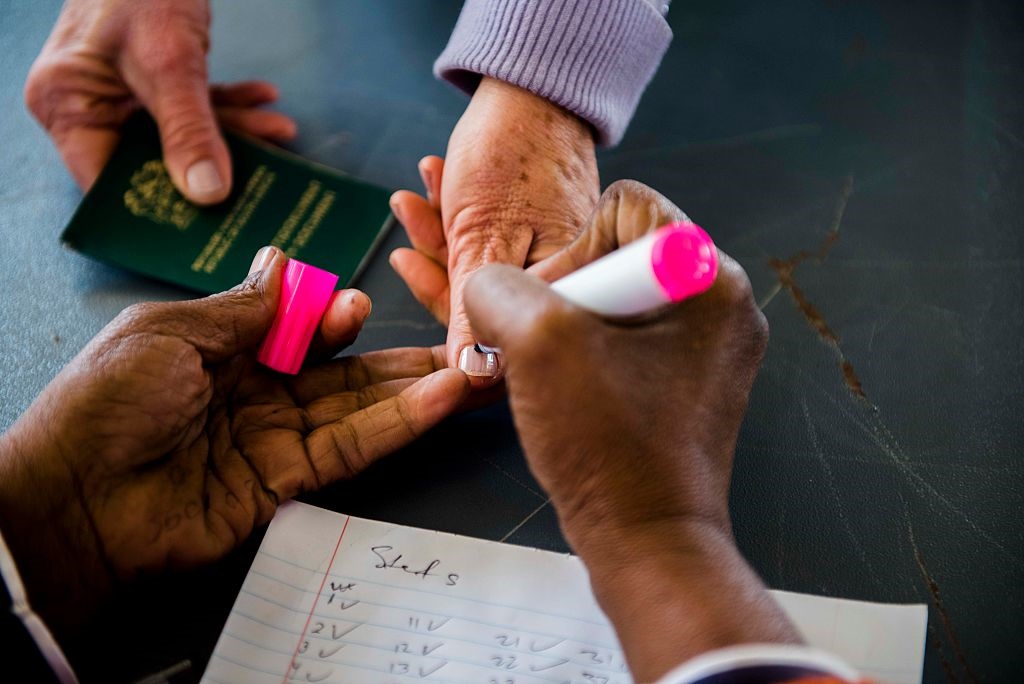


The Independent Electoral Commission (IEC) told Parliament’s Portfolio Committee on Home Affairs on Tuesday its investigating 1.1 million registered voters who have incomplete addresses.
- The Independent Electoral Commission (IEC) is investigating the incomplete addresses of just over 1 million voters ahead of next year’s local government elections.
- In June 2016, the Constitutional Court gave the IEC 18 months to rectify shortcomings in the voters’ roll and problems with missing addresses.
- The IEC said the biggest risk to the local government elections was the Covid-19 pandemic.
The Independent Electoral Commission of South Africa (IEC) is investigating 1.1 million potentially incomplete addresses on the voters’ roll, while another 1.2 million registered voters have no address at all.
South Africa has 26.5 million registered voters and, of these, 24.1 million have complete addresses, 1.1 million have a “potentially incomplete” addresses, and 1.2 million have no addresses at all.
The IEC revealed these figures during a virtual sitting of Parliament’s Portfolio Committee on Home Affairs on Tuesday.
The commission also presented its readiness plan for the 2021 local government elections.
READ | IEC looking at postponing 2021 local govt elections
IEC chairperson Glen Mashinini said the biggest risk ahead of next year’s elections was the Covid-19 pandemic.
“We remain, however, hopeful that the pandemic will be behind us or will be under control so that elections can take place. In these times of uncertainty, the best we can do is to continue to prepare as best we can, so we are ready to meet whatever changing conditions and challenges that awaits us,” he said.
Affected
The IEC’s deputy CEO for electoral operations, Masego Sheburi, told MPs that former “homeland” areas and informal settlements were most affected.
Gauteng has 419 550 registered voters with no addresses, Kwa-Zulu Natal 204 564, and the Eastern Cape 151 157.
“We are also engaged in an exercise of geo-coding addresses to confirm location within wards of registration. In instances where for example there is no nexus between and address on the voters’ roll and a ward in which the voter is registered, we will have a process of engaging with those voters for purpose of reregistering them correctly,” Sheburi said.
READ | Show must go on: IEC says 2021 municipal elections on track
In June 2016, the Constitutional Court gave the IEC 18 months to rectify shortcomings in the voters’ roll and problems with missing addresses.
Having an address attached to a voter is especially important for local government elections, where half the number of councillors are elected from wards.
“The key responsibility on our part would be to investigate all those instances that I refer to as potentially incomplete addresses, to investigate each of those 1.1 million addresses in order to make a determination that it is a complete address.
“In a village where the entire village locates within a single voting district, that address, incomplete as it is, may be faulted to a complete address because, in the court ruling, the court said there are two functional purposes for an address: it should assist contestants to identify and to campaign, secondly it should only allow persons who are within the boundaries of those wards to participate in the elections of those defined political boundries,” he said.
ALSO READ | Sadtu says schools should close until Covid-19 peak passes
The Municipal Demarcation Board (MDB) is scheduled to hand over to the IEC final ward boundaries for next year’s local government elections in two batches.
Sheburi said the first batch would be completed at the end of September.
The ward boundaries include 109 municipalities in the Eastern Cape, Gauteng, Kwa-Zulu-Natal, Mpumalanga and the Western Cape.
The second batch is expected to be delivered by November to 104 municipalities in the Eastern Cape, Free State, Gauteng, KwaZulu-Natal, Limpopo, North West, the Northern Cape and Western Cape.
Before every local government election, the MDB evaluates the potential demarcation and redemarcation of ward boundaries. Approximately 58 000 electoral staff are recruited and trained for the registration events. and 207 000 for voting day. Recruitment and training is scheduled to commence in January.

